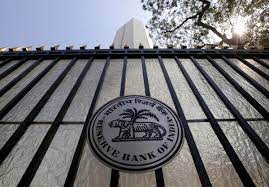With inflation under check, the government must now focus on fiscal consolidation to further macroeconomic stability
Is the Reserve Bank of India (RBI) inclined towards lesser quantum of interest rate hikes or even taking a pause, in line with the stance of one of its own monetary policy committee members? The central bank’s just-released “ State of the Economy” report would seem to suggest that. While inflation was the dominant concern of 2022, this could be displaced in 2023 by recession — a debate over whether it may turn out “short and shallow ” or “long and deep”. The report is also encouraged by “ macroeconomic stability getting further entrenched ” and the “first milestone of monetary policy” — consumer price inflation in the last two months falling within the RBI’s six per cent upper tolerance limit — being passed. It is even hopeful of fiscal consolidation “ underway at central and sub-national levels” and the external current account deficit “ on course to narrow through the rest of 2022 and 2023”.
The above prognosis, probably somewhat over- optimistic, is significant, coming less than two weeks before the Union Budget for 2023-24. Either way, it is sensible for the RBI to slow down the pace of monetary tightening, if not pause. Since early-May, the bank’s benchmark repo lending rate has gone up by 225 basis points, from 4 per cent to 6.25 per cent. That’s a fairly steep rise within a short period. It is well established that monetary policy acts with a lag. In this case, the transmission of the front-loaded interest rate increases to the real economy may take at least a few quarters. The RBI can, therefore, afford to adopt a wait-and-watch approach and allow the impact of its past monetary policy actions to be fully felt. This does not mean taking its foot off the pedal; bringing down inflation to the target (“second milestone”) of four per cent is no less important. But the balance of risks is today clearly tilted towards growth rather than inflation, both globally and domestically.
If the RBI is seen to have done enough of tightening for now, it is appropriate that the onus for macroeconomic stabilisation also shift more to North Block than Mint Street. The coming budget should prioritise fiscal consolidation. It implies no new populist schemes in the name of putting money in people’s hands or sharp tax cuts to supposedly incentivise investors. The world is, no doubt, viewing India favourably as an investment destination, both for its large domestic market and the need to de-risk from China in the current geopolitical environment. The Narendra Modi government’s focus on improving the country’s physical as well as digital infrastructure, plus schemes such as production-linked incentive for attracting investments in specific manufacturing sectors, has probably added to that perception. Demonstrating macroeconomic stability and policy credibility can be the icing on the cake to bring the world to India.
